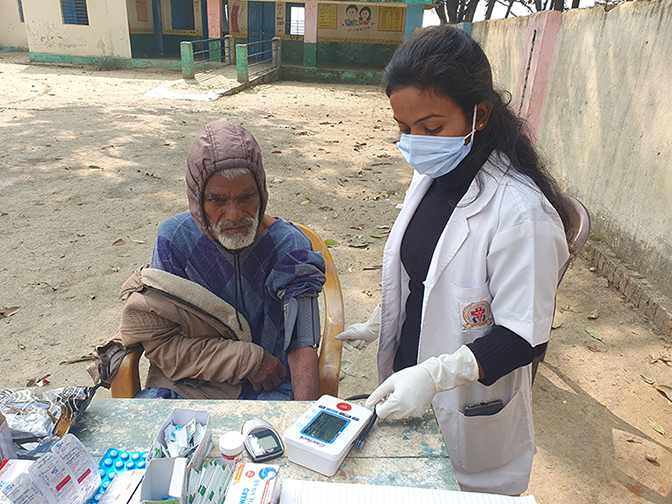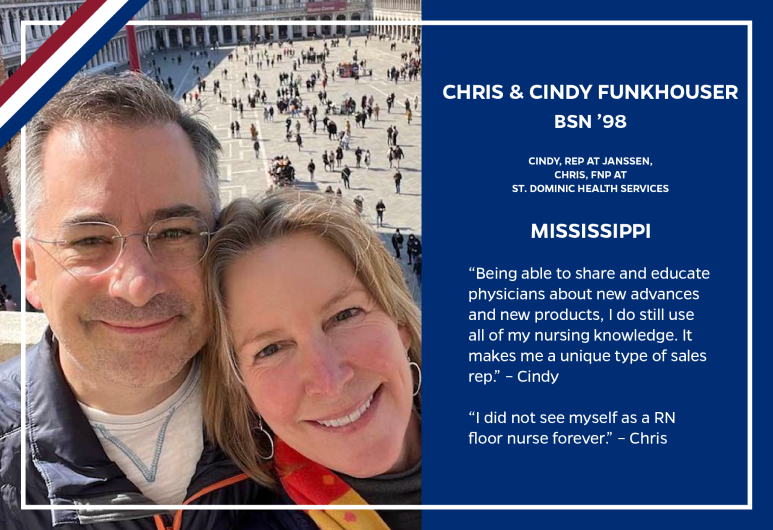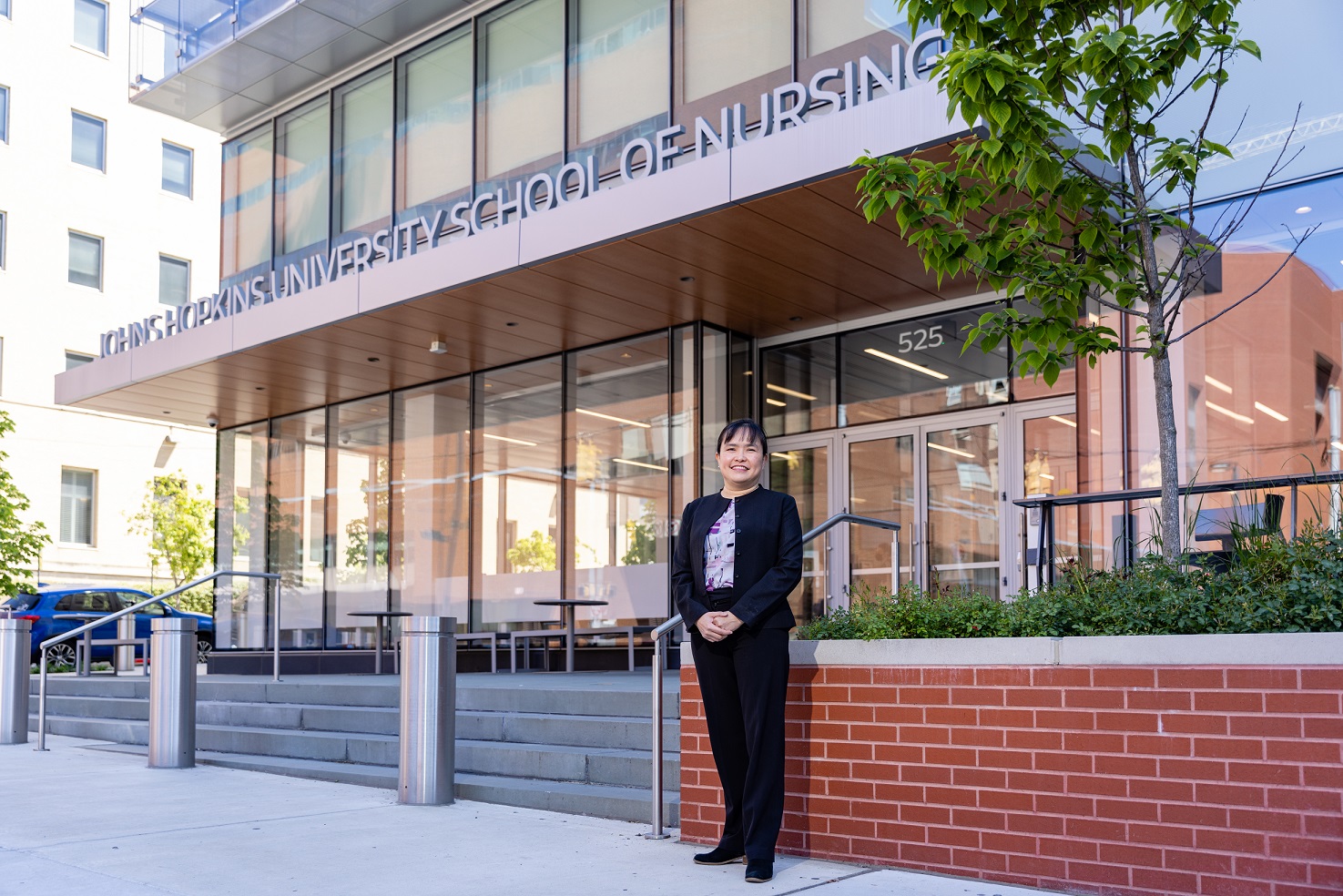Written by Teddi Fine
Over 20 million women and men in the United States are cancer survivors; two million of them, breast cancer survivors. The number of individuals living long lives after cancer continues to grow, primarily as the result of earlier detection and powerful new treatments. Johns Hopkins University School of Nursing student Eden Stotsky ’09 is one of those survivors. Her determination to earn a baccalaureate degree at the School of Nursing grew from her experience as a cancer patient at The Johns Hopkins Hospital a decade ago and her subsequent involvement in colon cancer patient education at the Johns Hopkins Colon Cancer Center, working with her own former surgical oncologist.
Stotsky, who will graduate with her baccalaureate degree in 2009, believes being a cancer survivor should mean living better, not just living longer. She admits that life after cancer is an experience for which many people-patients, nurses and doctors alike-are not always well prepared. “A big part of nurses’ work in cancer treatment needs to be about educating the patient, about coordinating services across years of surviving cancer, but that’s something that doesn’t happen very often,” she says.

However, when it comes to breast cancer, JHUSON assistant professor Sharon Olsen, MS, RN, is working to help change that situa-tion. As part of a new collaboration between the School of Nursing and the School of Medicine, she and her colleagues are implementing A Survivorship Program for Breast Cancer: A Transition for Patients and Providers. With over $185,000 in funding from the Susan G. Komen Foundation For The CURE Maryland, this new model of coordinated long-term care for breast cancer survivors focuses on the whole person, not just on the label of “cancer.”
Olsen, one of the School’s leading advocates for careers in cancer nursing, is firmly wedded to the proposition that nurses have an important role to play in promoting healthier lives after breast cancer for survivors. “When treatment for breast cancer ends and survivorship begins, people want to get on with their lives,” says Olsen. “Unfortunately, too little is done to help give people the tools they need to move back into a healthy life after they defeat breast cancer-or other cancers.”
Problems may begin to arise when a survivor “graduates” from ongoing care by her breast cancer team. Service fragmentation can lead to gaps in care, in part because too few primary care nurses and doctors feel comfortable managing survivor issues from sexuality, dry skin, and bone fragility to “chemo-brain” and heart health risks.
Stotsky echoes Olsen’s perspective, noting that “Nurses need to set aside time with patients to do this kind of work. It needs to be a natural part of what you do with your patients, whether they’ve got breast, colon, or some other form of cancer.”
The Komen award will enable Olsen to improve the health and wellbeing of cancer survivors through enhanced education for nurses. She plans to integrate breast cancer survivorship education modules into the undergraduate and master’s level nursing programs and grow new clinical opportunities with expert breast cancer nurses. In addition, she will establish both a brown-bag luncheon series and oncology interest group for students.
“A survivorship care team to partner with patients over the long-term has a value beyond compare for everyone who has battled and beaten cancer,” says Stotsky. “I’d love to be a part of this survivorship program both now and in the future.”
 In India, Breast Health Via Wellness Centers
In India, Breast Health Via Wellness Centers  Fannie Gaston-Johansson Faculty of Excellence Program
Fannie Gaston-Johansson Faculty of Excellence Program From Here to Forever
From Here to Forever Can We Identify Biomarkers for Pain, Fatigue, and Depression?
Can We Identify Biomarkers for Pain, Fatigue, and Depression? Childhood Cancer Survivors May Face Neurocognitive Challenges. Johns Hopkins’ SUCCESS Lab Works to Ensure They Receive a Quality Education.
Childhood Cancer Survivors May Face Neurocognitive Challenges. Johns Hopkins’ SUCCESS Lab Works to Ensure They Receive a Quality Education.







